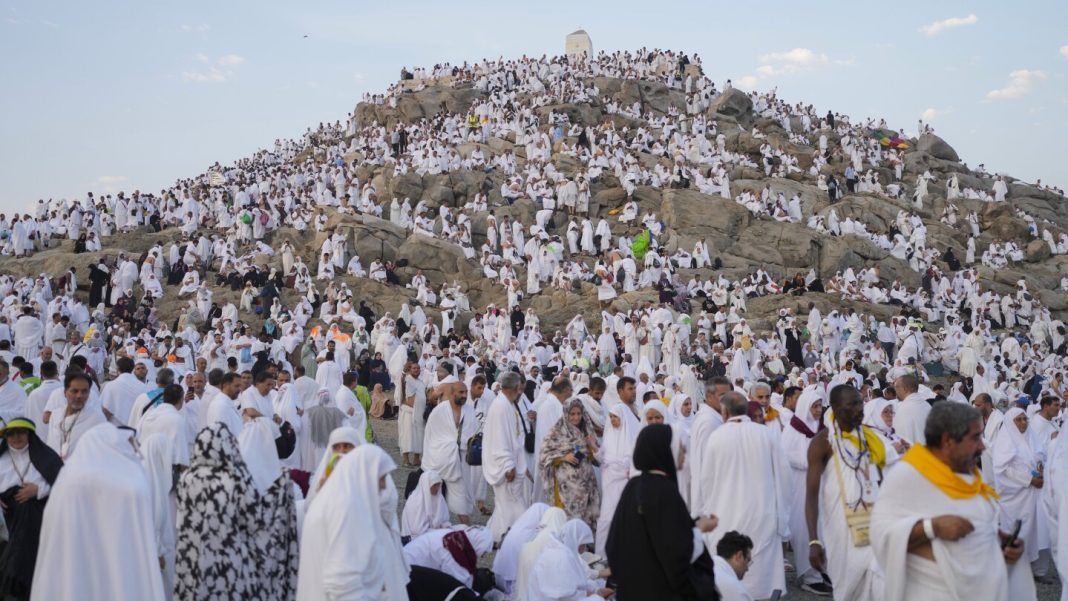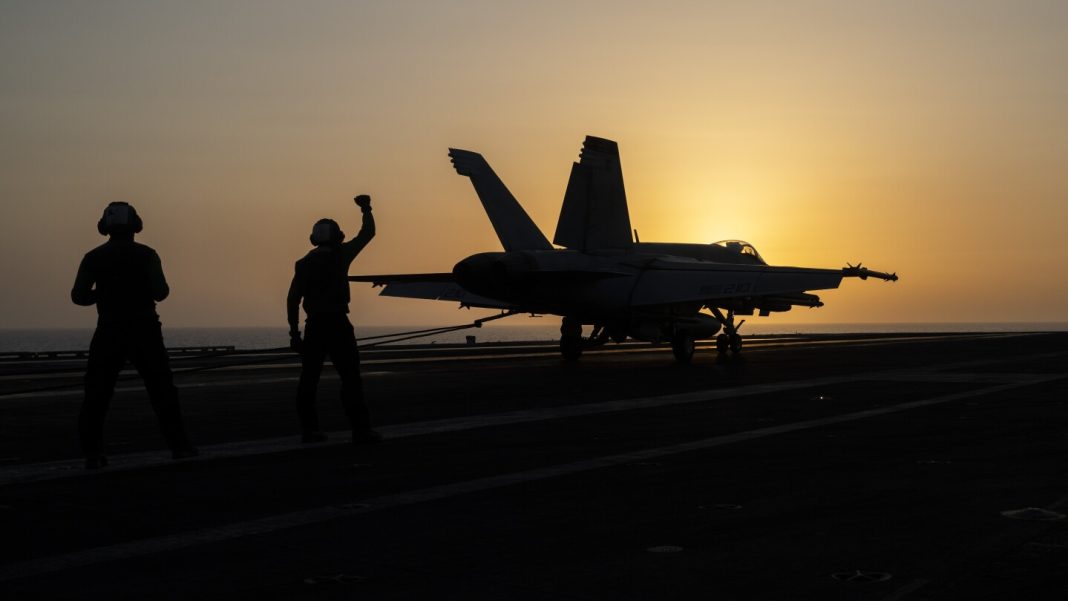MOUNT ARAFAT, Saudi Arabia (news agencies) — Following the footsteps of prophets beneath a burning sun, Muslims from around the world congregated Saturday at a sacred hill in Saudi Arabia for intense, daylong worship and reflection.
The ritual at Mount Arafat, known as the hill of mercy, is considered the peak of the Hajj pilgrimage. It is often the most memorable for pilgrims, who stand shoulder to shoulder, feet to feet, asking God for mercy, blessings, prosperity and good health. The mount is about 20 kilometers (12 miles) southeast of Mecca.
Thousands of pilgrims walked to the mount through the predawn darkness. On the slopes of the rocky hill and the surrounding area, many raised their hands in worship with tears streaming down their faces.
“For sure it is something great. It is the best day for Muslims during the year, and the best feeling that anyone can experience,” Hussein Mohammed, an Egyptian pilgrim, said as he stood on the rocky slopes at dawn. “It is the best place for anyone hoping to be (here) on this day and at this moment.”
It’s believed that Prophet Muhammad delivered his final speech, known as the Farewell Sermon, at the sacred mount 1,435 years ago. In the sermon, the prophet called for equality and unity among Muslims.
Ali Osman, a Spaniard pilgrim, was overwhelmed, as he stepped down the hill of mercy. He said he felt that he gained spiritual and physical strength at the sacred site.
“The place, thank God, (gives) very good energy,” he said. “I came here, thank God. It is my first time. I hope to come again in the future.”
Hajj is one of the largest religious gatherings on earth. The rituals officially started Friday when pilgrims moved from Mecca’s Grand Mosque to Mina, a desert plain just outside the city.
Saudi authorities expect the number of pilgrims this year to exceed 2 million, approaching pre-coronavirus pandemic levels.
The pilgrimage is one of the Five Pillars of Islam. All Muslims are required to make the five-day Hajj at least once in their lives if they are physically and financially able to make the demanding pilgrimage.
The rituals largely commemorate the Quran’s accounts of Prophet Ibrahim, his son Prophet Ismail and Ismail’s mother Hajar — or Abraham and Ismael as they are named in the Bible.
This year’s Hajj came against the backdrop of the raging war in the Gaza Strip between Israel and Hamas, which pushed the Middle East to the brink of a regional war between Israel and its allies on one side and Iran-backed militant groups on the other.
Palestinians in the coastal enclave of Gaza were not able to travel to Mecca for Hajj this year because of the closure of the Rafah crossing in May, when Israel extended its ground offensive to the strip’s southern city of Rafah on the border with Egypt.
Staving off potential protests or chants about the war during the Hajj, Saudi authorities said they won’t tolerate politicizing the pilgrimage. Col. Talal Al-Shalhoub, a spokesperson for the Interior Ministry, told reporters Friday evening that the Saudi government “will not allow any attempt to turn the sacred sites (in Mecca) into an arena for mob chanting.”
The time of year when the Hajj takes place varies, given that it is set for five days in the second week of Dhu al-Hijjah, the last month in the Islamic lunar calendar.
Most of the Hajj rituals are held outdoors with little if any shade. When it falls in the summer months, temperatures can soar to over 40 Celsius (104 Fahrenheit). The Health Ministry has cautioned that temperatures at the holy sites could reach 48 C (118 F) and urged pilgrims to use umbrellas and drink more water to stay hydrated.




